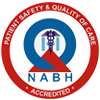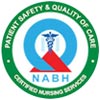
What are the different Cardiology Subspecialties?
July 10, 2023
Cardiology is a field that focuses on the treatment, diagnosis, and management of cardiovascular or circulatory disorders, including arteries, heart, and veins. There are two sub-divisions in the field of cardiology: non-invasive and invasive. Medical professionals who study invasive cardiology perform various procedures, such as heart catheterization, cardiac ablation, permanent pacemaker insertion, implantable defibrillator insertions, emergent angioplasty, and electrophysiology. Medical professionals who study non-invasive cardiology focus on the management or prevention of cardiovascular diseases. These professionals help patients during treatment, diagnosis, testing, and recovery.1. Cardiothoracic Surgeon
Cardiothoracic surgeons treat patients who have conditions related to their lungs and hearts. They operate on these patients when there’s a need for surgery.2. General Cardiologist
As a general cardiologist, you will focus on preventing, diagnosing, or managing cardiovascular diseases. This is why general cardiologists are involved in inpatient care for the long-term. They appropriately select medication, treat the patient after surgery and help them with a range of heart-related disorders. These cardiologists are not trained to read complex diagnoses, such as MRI studies. However, these are equipped to interpret stress tests, electrocardiograms, and Holter monitors.3. Echo cardiologist
As the name suggests, echo cardiologists mainly work on the interpretation and performance of ultrasound-related procedures of the heart.4. Interventional Cardiologist
As an interventional cardiologist, you may get a chance to perform various procedures, such as balloon angioplasty, removing plaque build-up, etc. They are professional users of laser and cutting devices during medical procedures.5. Electrophysiologist
For people who face cardiac arrhythmias, electro physiologists are the answer. They treat, diagnose, and manage these arrhythmias through invasive procedures. These medical professionals are equipped to implant pacemakers and other devices in the patient.6. Congenital Cardiologist
A congenital cardiologist receives training to support patients with genetic heart disorders. They practice delivering non-invasive medical treatments to patients. However, they may still perform invasive or interventional therapies.7. Transplant and Heart Failure Cardiologist
Transplant and heart failure cardiologists receive training to treat patients who have refractory heart failure or related issues.8. Preventive Cardiologist
A preventive cardiologist is a general cardiologist who has an interest in preventing cardiovascular diseases in patients. From all of the above sub-specialties, preventive cardiologists have the most profound understanding of emerging risk factors and early signs of a cardiovascular disorder.Recent Blogs
- Signs You Need to See a Doctor for Kidney Pain
- What Is A Nuclear Radiologist
- GUIDE TO NUCLEAR MEDICINE IMAGING
- Nuclear Medicine In Oncology
- Advancements In Nuclear Medicine Technology
- The Role Of Radiotracers In Nuclear Medicine
- An Introduction To Nuclear Medicine
- Cardiac Catheterization: When Is It Required?
- Types Of Pediatric Cardiology Test
- Tips For Preventing Heart Problems In Kids
- Advances In The Diagnosis Of Congenital Heart Disease In Children
- Signs Of Heart Problems In Children
- What Is A Pediatric Cardiologist?
- Understanding Congenital Heart Defects In Children
- Pediatric Cardiac Surgery: Types And Considerations
2023
- December (6)
- November (8)
- Cardiac Catheterization: When Is It Required?
- Types Of Pediatric Cardiology Test
- Tips For Preventing Heart Problems In Kids
- Advances In The Diagnosis Of Congenital Heart Disease In Children
- Signs Of Heart Problems In Children
- What Is A Pediatric Cardiologist?
- Understanding Congenital Heart Defects In Children
- Pediatric Cardiac Surgery: Types And Considerations
- September (7)
- Lifestyle Changes To Prevent Diabetes
- New Innovative Advances In Diabetes Treatment
- The Link Between Obesity And Diabetes
- Monitoring Blood Sugar At Home
- The Importance Of Regular Diabetes Check-ups
- Understanding Diabetes: Types, Causes, Symptoms & Treatment
- Lower Blood Sugar Naturally: Managing Blood Sugar Through Diet
- August (8)
- What’s The Difference Between A Neurologist And Neurosurgeon?
- Dementia: Causes, Symptoms, Diagnosis And Treatment
- Seizures: Causes, Symptoms, Diagnosis And Treatment
- Epilepsy: Causes, Symptoms, Diagnosis And Treatment
- Is Autism A Neurological Disorder? Causes, Symptoms & Diagnosis
- Pediatric Neurology: Neurological Disorders In Pediatrics
- What Are The Most Common Neurological Disorders?
- Types Of Neurosurgery: Overview, Procedure & Costs
- July (11)
- Types of Cardiac Stents
- Types of nuclear cardiology tests
- What Are the Different Types of Heart Surgery and Their Purposes?
- What is the difference between Cardiologist and Cardiothoracic Surgeon?
- What is the difference between Invasive, Non Invasive and Interventional Cardiology?
- What are the different Cardiology Subspecialties?
- What Are The Do’s And Don’ts For The Embryo Transfer Process?
- 5 Myths Over IVF
- Superfoods That Can Boost Your Chances of IVF Success
- What Is Male Infertility? Treatments For Male Infertility
- Causes of Male and Female Infertility
- April (4)
- March (1)
-

Share with us
Click Here -

Organ Transplantation
Click Here
Copyrights © 2025 PSG Hospitals. All Rights Reserved.








